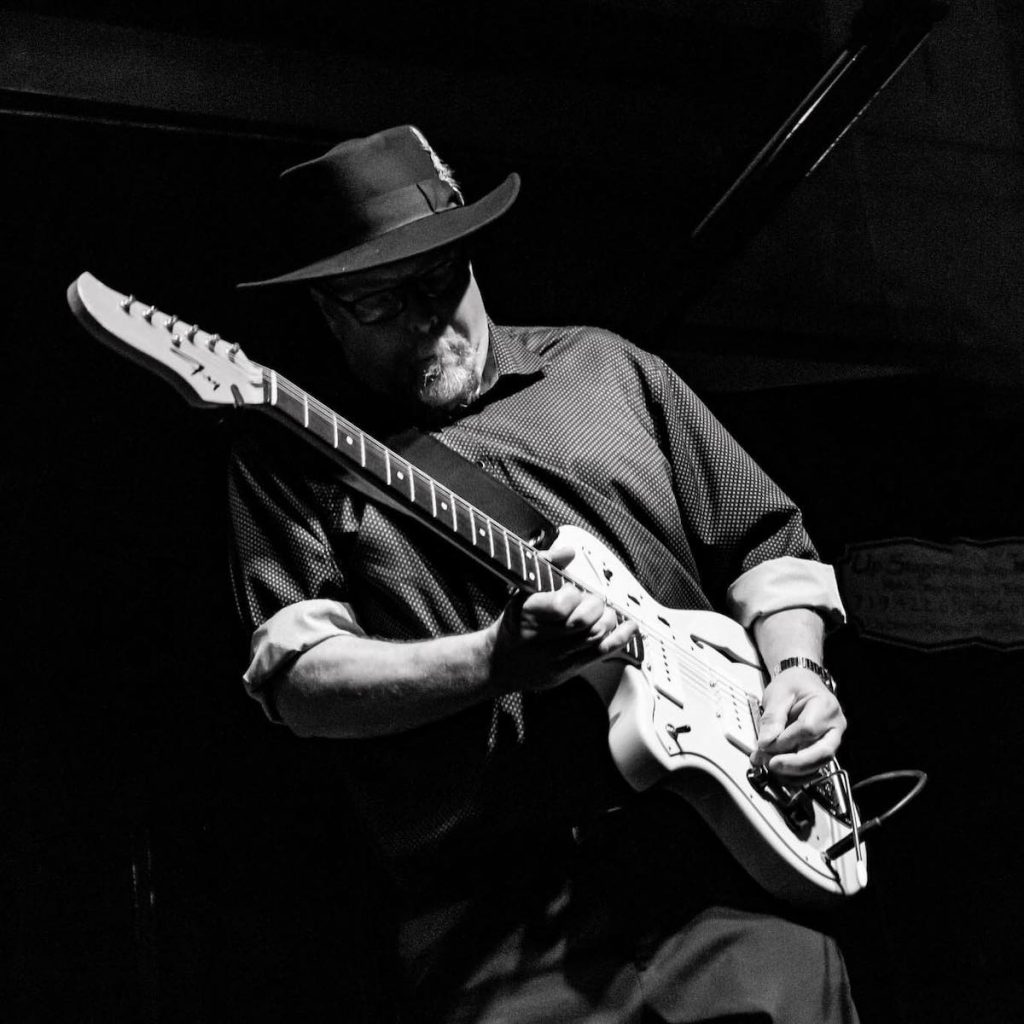Culture
Tom Holland talks about discovering the blues in the pre-Internet age
By: Emily Votaw
Posted on:
MARIETTA, Ohio (WOUB) – Tom Holland and the Shuffle Kings play the 31st River City Blues Festival this weekend at the Lafayette Hotel (101 Front Street).
Tom Holland spoke to WOUB about what it was like to discover the blues in the pre-Internet age, and why it’s so important to promote reverence for American genres of music like the blues, jazz, and folk music. Find a transcript of that conversation, edited for length and clarity, below.

Tom Holland: Chicago Blues.
Very accurate, quite succinct! I appreciate that. So in reading over your bio, I noticed how incredibly young you were when you taught yourself how to play guitar by listening to Muddy Waters records. I’m curious, why do you think Muddy Waters in particular struck such a chord in you when you were so young?
Holland: No idea. My dad had a very large collection of LPs, and I mean everything from classical to jazz, blues, rock, r&b. So I mean, it was, in terms of listening to music, I was very well-rounded in what I could listen to, and my dad tended listen to blues and r&b and jazz the most. When I was younger, I didn’t know that there was a difference between blues, jazz, or whatever. It was always: ‘Well, I like this, so I’ll go search that stuff out,’ and that’s when I was like, ‘oh, this is blues. Okay, whatever. I like it.’
So, being a teenager who was so well-rounded when it came to knowing music – like did you ever get to talk about Muddy Waters with other teenagers?
Holland: Not really. When I was learning to play guitar, I had a neighbor across the alley from me that famously, after I’d been sitting in my bedroom window for hours at a time trying to play guitar, he would routinely yell from across the alley, “play something happy!”
What it was like to find a community of people who you could talk to about music about later on in your life?
Holland: I guess you could say I was very hardheaded. It’s like I dove in all the way and just kind of shut the rest of the world out and just went to finding out about all this stuff. And that was long before the Internet and YouTube. Nowadays you want to find something, you just go on your computer or your phone and there it is. When I was coming up, I was going to record stores going, ‘how come you don’t have any blues stuff? Van Halen or whatever is fine, but I’m looking for this.’
So it was almost like an adventure in itself, just trying to figure out how I was going to get any of this stuff. I’d go to the bookstore and look for magazines about blues, and there weren’t that many. Guitar magazines would mention blues every once in a while, but outside of that, it was almost like finding a needle in a haystack.
As I got older and got a driver’s license and all that, then I’d hear about places where I could hear live blues. So I’d make up some excuse, ‘oh, I’m going over to so-and-so’s house,’ and then I’d jump in the car and go find the music I was looking for.
Wow, that must have made it seem so magical.
Holland: And I think that was probably part of how it ended up sticking.
So, I am calling because you’re performing at the 31st River City Blues Festival, and that’s organized by a nonprofit, the Mid-Ohio Valley Blues, Jazz, and Folk Music Society. They’re so focused on promoting these genres – blues, folk, jazz music. Why is that so important?
Holland: Because to a lot of people, those are the forms of music that America brought to the world. And [the Society] does a really, really good job of making sure people are aware of the history of the music of America – they make sure that no one will forget about where all of the popular music came from in the world today. It’s always been an interesting thing for me to see, all over. I mean, I’ve played all over the world and a lot of the blues musicians that have toured all over the world, it’s kind of like an inside joke that we have to, in order to get recognized, we have to go out of the country.
Every time I’ve toured, I mean, even going to Canada – as soon as you’re outside of the United States, we get treated like kings and they make sure that the musicians are taken care of, that we have a safe place to stay, that we’re being compensated accordingly. And it’s like there’s a reverence to it. And not to say that that doesn’t happen in the U.S. but the reverence towards the music is not really as prominent as it could be. Organizations like [the Society] help give that reverence the prominence it deserves here in the States.

